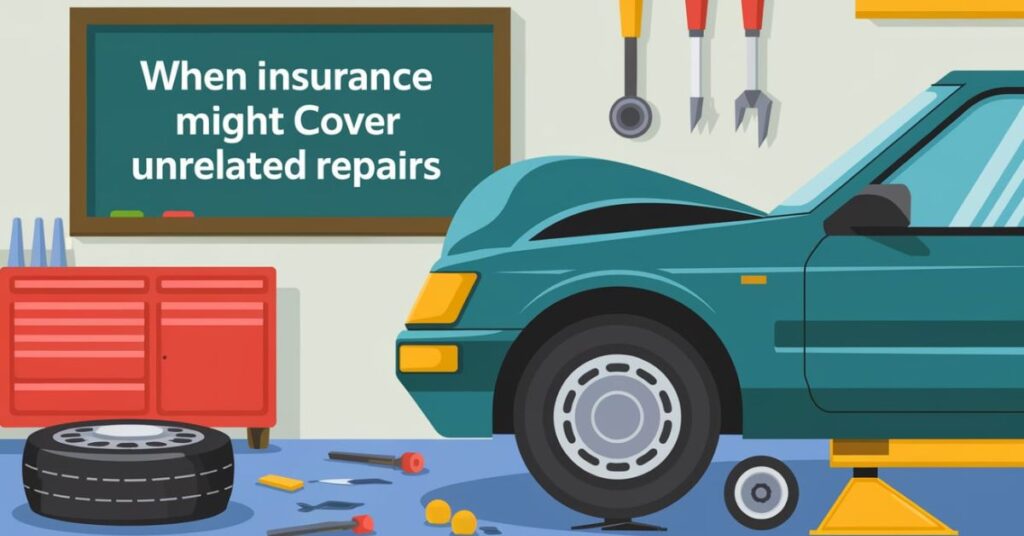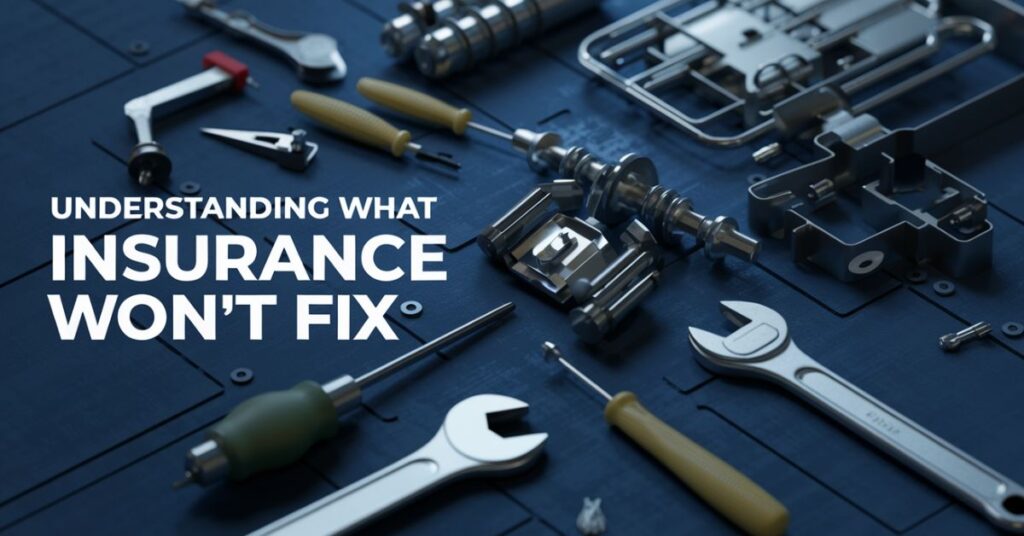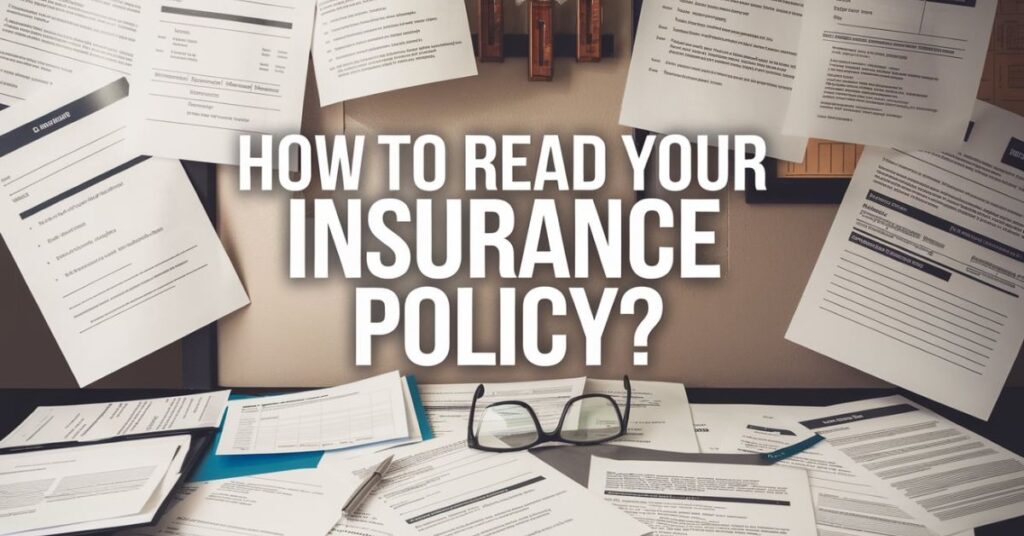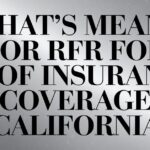Insurance is a way to protect your things. It helps when bad stuff happens. Insurance fixes can cover damage, but it has rules.
Have you ever wondered if Insurance Fix can do more? Maybe you had a car crash and hoped it would fix old problems too. Or your roof got hurt, and you wanted it to fix old windows.
This article will teach you about insurance fixes. We’ll look at what it covers and what it doesn’t. We’ll focus on whether an insurance fix can help with things not related to the damage. This is key for anyone with insurance or thinking about getting it.
What Insurance Covers?
Insurance fixes are like a safety net. But it has rules about what it will pay for. These rules are important to know.
Insurance fix usually only pays for things that get hurt by accident. For example, if your car gets hit, it will pay to fix the dent. But it won’t pay to fix an old engine problem. This is because the engine issue isn’t related to the crash.
Most of the time, insurance fixes only help with things that are damaged in the event you’re claiming for. Insurance companies have lists of what they cover. These lists are called policies. They tell you exactly what the insurance fix will help with.
Types of Insurance and Their Coverage
There are many kinds of insurance. Each type covers different things. It’s good to know what your insurance fix will pay for. This helps you understand what to expect.
Home insurance is common. This insurance fix covers damage to your house. This could be from fire, storms, or theft. It usually won’t fix things not related to the damage. It only pays for the specific damage that happened.
Car insurance is another type. This insurance fix helps when your car is in an accident. It can pay to fix your car or other cars involved. But it usually won’t fix unrelated problems. It focuses on the accident damage only.
When Insurance Might Cover Unrelated Repairs

Sometimes, insurance fixes might pay for extra things. This doesn’t happen often. But there are special cases. It’s good to know about these situations.
One case is when fixing the damage causes other problems. For example, if fixing a roof leak damages a wall. In this case, insurance fix might pay to fix the wall too. This is because the wall damage happened while fixing the insured problem.
Another case is when the law requires extra work. Some places have rules about fixing old buildings. If you fix one thing, you might have to update other parts too. In this case, an insurance fix might pay for the extra work required by law.
The Fine Print in Insurance Policies
Insurance policies have lots of details. These details are important. They tell you exactly what the insurance fix will do. It’s smart to read your policy carefully.
The fine print talks about limits. It says how much money the insurance fix will pay. It also lists things it won’t cover. This is where you find out if it will help with something unrelated to the damage.
Sometimes, the fine print has surprises. You might find out about extra coverage you didn’t know about. Or you might learn about things that aren’t covered. Reading the fine print helps you understand your insurance fix better.
Common Misunderstandings About Insurance Coverage
People often have wrong ideas about insurance fix. Many think it will fix everything. This isn’t true. It has limits.
Some believe insurance fix covers normal wear and tear. But it doesn’t pay for things that just get old. It is for sudden, unexpected events.
Many assume all policies are the same. This is not correct. Each policy can be different. It’s important to read your policy.
Some people don’t tell their insurance company everything. This is a mistake. Insurance fix needs all the facts to work right.
A few try to use old damage for a new claim. This is not allowed. Insurance fixes are for new damage, not old problems.
Understanding What Insurance Won’t Fix

Insurance policies have parts they don’t cover. These are called exclusions. It’s important to know what these are for your insurance fix.
Normal Wear and Tear
Insurance fixes don’t pay for things that just get old. This is called wear and tear. You need to take care of regular upkeep yourself. It is for sudden damage, not slow decay.
Pre-existing Conditions
If something was already broken, an insurance fix won’t help. This is a pre-existing condition. It only covers new damage. Old problems are your responsibility, not the insurance company’s.
Intentional Damage
Insurance fixes won’t pay if you break something on purpose. This is called intentional damage. It’s not covered because it’s not an accident. It is for unexpected events, not things you do on purpose.
Acts of War
Most insurance fixes don’t cover damage from war. This is a special exclusion. It’s rare, but important to know. War damage is too big for normal insurance to handle.
Nuclear Hazards
Damage from nuclear accidents is usually not covered. This is another rare but important exclusion. Nuclear problems are too big and unusual for regular insurance fixes.
Read this article: Are New Built House Insurance Cheaper? A Complete Guide
How to Read Your Insurance Policy?

Reading an insurance policy can be hard. But it’s important to understand what you’re buying. Here’s how to read your policy better.
Start with the declarations page. This page gives you a quick summary. It tells you what kind of insurance fix you have. It also shows how much coverage you have. This helps you see what it will pay for.
Next, look at the coverage sections. These tell you what the insurance fix will pay for. They use special words sometimes. If you don’t understand, ask your agent. They can explain what everything means.
Finally, check the exclusions. These are things the insurance fix won’t cover. Knowing these helps you avoid surprises later. It’s where you’ll find out what it won’t pay for.
When to Contact Your Insurance Company
Knowing when to call your insurance is important. You don’t want to miss out on coverage. But you also don’t want to make unnecessary claims.
Call your insurance right away if you have big damage. This could be from a car crash or a fire in your home. Quick action helps your claim. The company can tell you if they cover the damage.
For small problems, think carefully before calling. Small claims can raise your rates. Sometimes it’s better to pay for small fixes yourself. But if you’re not sure, you can always ask.
If you’re not sure about coverage, call and ask. It’s better to know before you need it. You can ask questions about what your insurance fix covers. They can explain your coverage clearly.
Comparing Insurance Policies
Different policies offer different things. It’s smart to compare before you buy. Here’s a simple comparison of what policies might cover:
| Type of Coverage | Basic Insurance | Standard Insurance | Premium Insurance |
| Accident Damage | Yes | Yes | Yes |
| Natural Disasters | Limited | Most | All |
| Theft | Yes | Yes | Yes |
| Personal Items | Limited | More | Most |
| Extra Living Costs | No | Limited | Yes |
| Unrelated Repairs | No | Rare Cases | Some Cases |
Making the Most of Your Insurance

Having insurance is smart. But using it wisely is even smarter. Here are some tips to get the most from your insurance fix.
Know your policy well. Read it carefully. Ask questions if you don’t understand. This helps you know what’s covered. You’ll know what your insurance fix will pay for.
Keep good records. Take pictures of your stuff. Save receipts for big purchases. If you need to make a claim, this makes it easier. Good records help prove what you owned and what it was worth.
Update your policy regularly. Your needs change over time. Maybe you bought new things. Or maybe you made changes to your home. Tell your company about these changes. This keeps your coverage up to date.
Dealing with Insurance Claim Denials
Sometimes insurance companies say no to claims. This can be frustrating. But there are things you can do. Don’t give up if your claim is denied.
Ask why they said no. Get the reason in writing. Sometimes it’s a simple mistake that can be fixed. Other times, they might not have all the information they need. Understanding why helps you know what to do next.
If you think they’re wrong, you can appeal. This means asking them to look at your claim again. Provide any new information you have. Show them why you think they should cover the damage.
If the appeal doesn’t work, you have other options. You can talk to your state’s insurance department. They might be able to help. Or you can hire a lawyer who knows about insurance. But remember, this can be expensive.
Tips for Filing a Successful Insurance Claim
Filing a claim can be tricky.
Here are some tips to help:
- Act fast. Report damage right away.
- Take lots of pictures of the damage.
- Keep all receipts for repairs or replacements.
- Be honest. Don’t try to claim for unrelated damage.
- Follow up regularly about your claim.
The Future of Insurance Coverage

Insurance is always changing. New risks come up. Technology changes things. Here’s what might happen in the future.
More personalized policies might come. These would fit your exact needs. They might use data about your life to decide what you need. This could change how we think about coverage.
Technology might make claims easier. You might be able to file claims with just your phone. Drones might check damage to houses. This could make the whole process faster and easier.
Climate change might affect insurance too. More storms and floods could mean changes in coverage. Companies might offer new types of protection. They might also charge more for insurance in areas with high risk.
Final Words
Insurance is a complex topic. It’s not always easy to understand. But knowing the basics can help you a lot. We’ve looked at many aspects of insurance fixes in this article.
We started by asking if an insurance fix could help with something unrelated to the damage. The answer is usually no. It is designed to cover specific damages. It’s not meant to fix unrelated problems. But there are exceptions. Sometimes, related repairs might be covered.
Remember to read your policy carefully. Ask questions if you’re not sure. Keep your insurance up to date. And if you need to make a claim, be honest and thorough. With these tips, you can make the most of your coverage.
Frequently Asked Questions
Can insurance fix something unrelated to the damage?
Usually not. It typically only covers damages directly related to the insured event.
What should I do if my claim is denied?
Ask for the reason in writing, then appeal if you think they’re wrong.
Does insurance cover wear and tear?
No, regular wear and tear is not covered by most policies.
How often should I update my policy?
Review your policy annually or whenever you make big changes to your property.
Can I file a claim for old damage?
No, you should file claims promptly after damage occurs. Old damage is usually not covered.

David: Seasoned financial expert with 5 years in banking and investments.
Skilled in personal finance, market analysis, and wealth management. Empowers clients to achieve financial goals.





